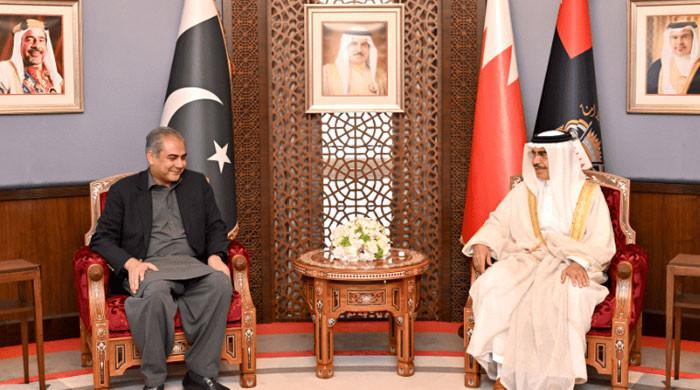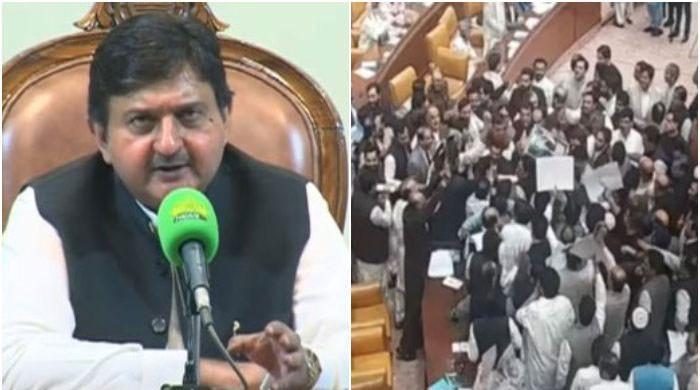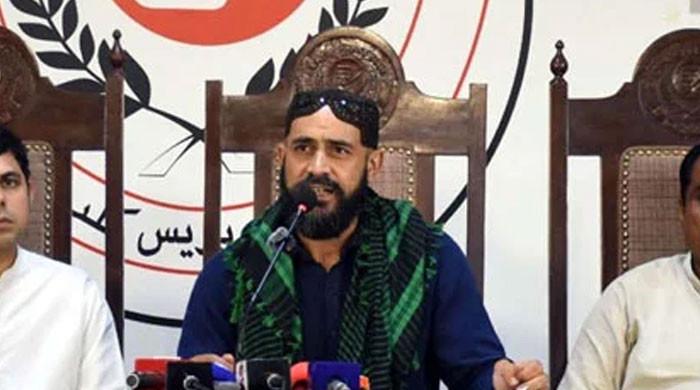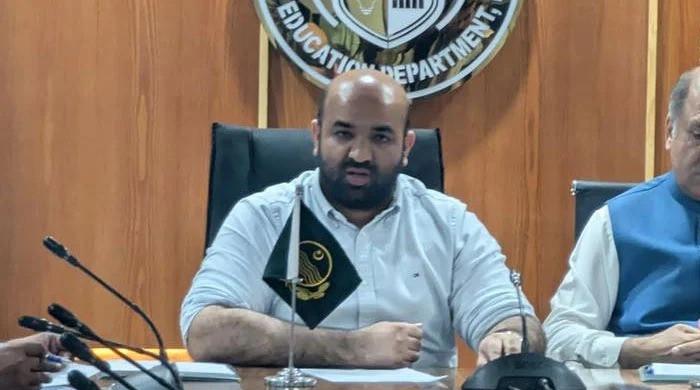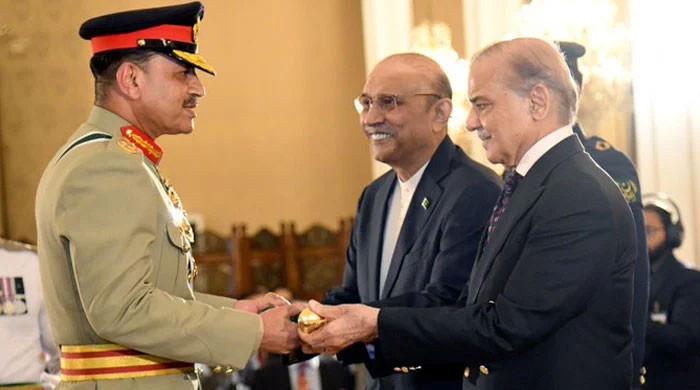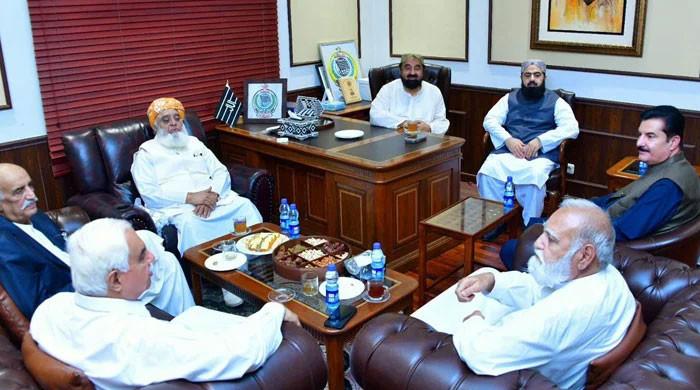Punjab Assembly divided over Tahaffuz-e-Bunyad-Islam Bill as members call for amendments
Punjab Law Minister says the government will not proceed over the Bill unless there is a consensus
August 08, 2020
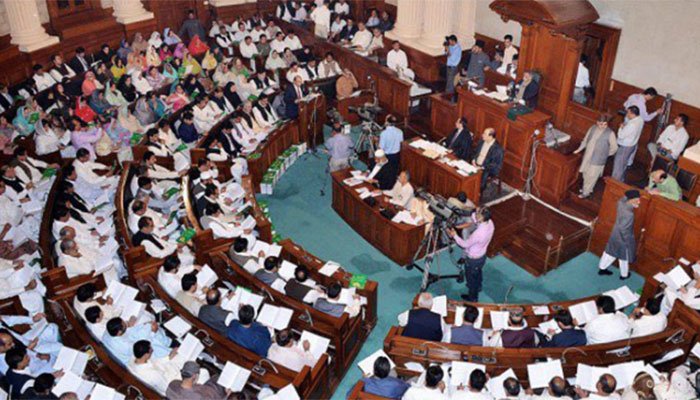
LAHORE: A divided House of the Punjab Assembly has urged the government to make amendments to the Tahaffuz-e-Bunyad-e-Islam Bill and to hold a fresh debate over the Bill before it is passed.
Several PTI, PML-N and PPP lawmakers have demanded the formation of a committee comprising members of the House and ulema to review the Bill before it becomes an Act.
During Friday’s hotly debated session, Punjab Law Minister Raja Basharat told the House that the government would not proceed over the Bill unless there is a consensus.
Members from both sides, including provincial minister Hussein Jehanian Gardezi, Chairman Public Accounts Committee Syed Yawar Abbas Bukhari, PPP-P Parliamentary leader Syed Hassan Murtaza, PML-N MPAs Kazim Pirzada, Agha Ali Hyder and many others stood on their seats during the session and expressed serious dismay over the passage of the Bill, which, according to them, could lead to a serious religious divide in the country.
Gardezi, a senior politician from Multan, while expressing concern over the Bill, said, “We don’t know how this Bill suddenly got passed”.
He added that any legislation over Shariah related issues should be done with unanimity.
“If it was the government’s legislation, it should have been approved by the cabinet and if it was a Private Members Bill, it should have been dealt as Private Members legislation, yet neither was done,” he said.
The lawmaker added that the Bill was related to 'Bunyaadi Aqaaid' (basic creed), and the Punjab Information Department could therefore have nothing to do with it. He demanded the government come up with amendments to the Bill and address the people’s reservations.
PTI lawmaker Bukhari, who also heads the Public Accounts Committee-2, while speaking on the floor of the House sought an apology from the nation for supporting the Bill.
“The way we were kept in the dark over this Bill and the way the basic philosophy of a sect has been challenged in this legislation is a cruel joke,” he said.
“We reject this Bill; if they want to create a divide in the House, they can, but we will not side with this and will go to any extent [to stop its passage] even if we have to stage sit-ins or take to the streets” Bukhari said.
He urged the government come up with fresh legislation in which people from all schools of thought, not just a handful of people, have their say.
In a similar vein, PPP Punjab Parliamentary leader Murtaza said that a lot of false information regarding his role as the committee member had been spread.
“I have never been part of any committee that drafted this Bill,” he clarified, demanding the government provide minutes of the Standing Committee meetings if the Bill had been moved as government legislation or as Private Members' Legislation.
Murtaza said he never received a phone call to attend the meeting but he had been mentioned as the committee member, which was highly condemnable.
The lawmaker added that though he held people from all religious schools of thought in esteem and respected their creed, no one had the right to tell him what he should practice or what he should not.
"Will an 18 grade officer of DGPR teach us religion, will he interpret my beliefs?” asked Murtaza while rejecting the role of the Punjab Information Department in this legislation.
He said no DGPR official had any right to interpret his religion, adding that consensus must be evolved on this Bill and fresh legislation process should be initiated over it.
Pirzada, the PML-N legislator from Bahawalpur, while speaking on the floor of the House, stated that the government must form a committee comprising ulema as well as members of the House and fresh debate should start over the Bill.
“Under parliamentary norms, the House members should know whether it was a government legislation or a Private Members Bill and which committee discussed it,” he said.
Warning that the Bill would destroy the peace of the country and give rise to a new conflict, Pirzada asserted that all schools of thought had objection to the Bill.
Ali Haider, the PML-N legislator who hails from Nankana, said it was the unanimous voice of the House that the government should withdraw the Bill and come up with fresh amendments to it.
Basharat, while responding to the concerns shown by members over the Bill, said that the Bill was yet to be sent to the governor.
“When the Bill was passed, objections were raised to it, after which the government decided not to send it for further process,” he told the House. He added that the views expressed by the members of the House were significant and that they would have been appropriate had the MPAs studied the Bill before it was passed.
The Punjab Assembly on July 22 had passed the Tahaffuz-e-Bunyad-e-Islam Bill which gave the Directorate General Public Relations (DGPR) powers to visit and inspect any printing press, publication house, book store and confiscate any book, before or after printing.
After the passage of the Bill, Majlis Wahdatul Muslimeen (MWM) had raised objections to it and Punjab Governor Chaudhry Sarwar also came up with a clear stance that he would not sign the Bill unless consensus was developed.
After, some PTI members had objected, the government decided not to send the Bill to the governor.
Under the law, the governor has to return the Bill to the Punjab Assembly within 10 days, which is then again sent to the governor for a second time. Even if the governor raises objection and returns the Bill to the assembly after that, it becomes an Act if passed by the house.
Originally published in The News




